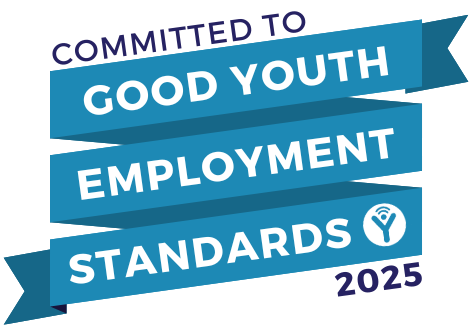This blog will focus on introducing the policy, what counts as off-the-job training and how it is calculated and planned.
So what is off-the-job training?
Off-the-job training is a statutory requirement for an English apprenticeship. It is training which is received by the apprentice during normal working hours, for the purpose of achieving the knowledge, skills and behaviours of the approved apprenticeship that is referenced in the apprenticeship agreement.
Off-the-job training must deliver new skills that are directly relevant to the apprenticeship standard. It can include the following:
• The teaching of theory (e.g. lectures, online learning and manufacturer training);
• Practical training (e.g., mentoring, industry visits and participation in competitions) Activity must have been agreed as part of the agreed training plan.
• Learning support and time spent writing assignments.
From 1 August 2022, new full-time apprentices must spend at least 20% of their working hours on off-the-job training. For calculation purposes only, working hours are capped at 30 hours per week, and this equates to an average of 6 hours of off-the-job training per week.
The minimum number of off-the-job training for an apprentice is 278 hours and this applies to all apprenticeship standards with a duration of 12 months.
How can I make sure the activity is considered off-the-job training?
To be considered off-the-job training, the activity must:
• Teach ‘new’ knowledge, skills, and behaviours (identified through the apprentice’s initial assessment).
• Be directly relevant to the apprenticeship standard
• Take place during the apprentice’s normal working hours
• Exclude English and maths up to Level 2.
If I deliver in-house training to an apprentice or send them on an external training course, can this be counted as off-the-job training?
This will depend on whether the activity meets the definition of off-the-job training, whether it was agreed in advance, and documented in the training plan. It must be excluded if the training is not relevant to the apprenticeship.
If there is a knowledge or skill element in the apprenticeship standard which is also a company requirement for all employees, this can also be included. However, this is dependent on if the activity is imparting new skills to the individual, which will help them to achieve their apprenticeship.
Can gaining ‘higher’ learning of knowledge, skills and behaviours count towards off-the-job training?
Some standards, depending on the apprenticeship level, may require specific levels of knowledge. For example, an individual could have a basic understanding of excel spreadsheets, but the apprenticeship they are now following requires a more advanced skill level. This means the individual can build on their existing skills base to develop new skills in the area.
Can I use our internal induction programme for off-the-job training?
It would not be appropriate to include a generic induction as off-the-job training. However, some company inductions may include an educational aspect that might be relevant to the apprenticeship (e.g. manual handling). Provided the employer and provider have agreed to this being part of induction it can be included.
What isn’t off-the-job training?
• Time spent on initial assessment and onboarding activities.
• English and maths training, up to and including level 2.
• Training to acquire knowledge, skills and behaviours that are not required by the apprenticeship standard.
• Training which takes place outside the apprentice’s normal working hours.
Do we have to commit to off-the-job training hours each week for the entire length of the apprentice’s apprenticeship?
The calculation of off-the-job requirements will be confirmed before the apprentices start their programme but how they reach the total hours can be met in a number of ways. As of 1st August 2022, the minimum requirements will be based on 6hr per week (based on full time being 30 hrs).
What is Recognised Prior Learning and what is the connection with off-the-job training?
If a provider is accessing government funding to deliver an apprenticeship, they must conduct an initial assessment of the individual’s abilities, in line with the apprenticeship.
As part of this, as well as confirming the learner’s eligibility for the programme and checking for disabilities, the provider will identify the individual’s prior learning and experience. This is in the form of a ‘skills-scan’.
This is important to establish a ‘starting’ point for the learner and all off-the-job training should be planned to teach ‘new’ knowledge, skills and behaviours.
To read part 2 which focuses on the delivery, documentation, and evidence of off-the-job training within apprenticeships please click here.







